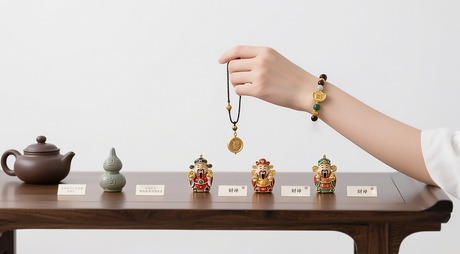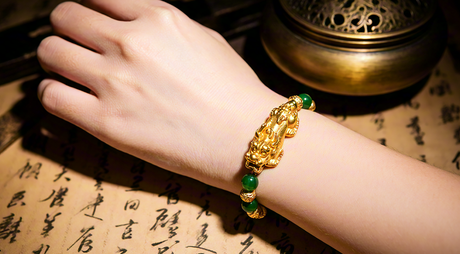Overview
Personalization in marketing tailors experiences based on individual preferences, enhancing customer engagement and brand loyalty. Key strategies include data collection, segmentation, and leveraging technology. Successful examples like Amazon and Nike demonstrate the impact of personalized recommendations and custom products. As brands prioritize personalization, they must also address privacy concerns to build trust. Ultimately, creating memorable interactions fosters lasting connections with customers.
Frequently Asked Questions
1. What is personalization in marketing?
2. Why is personalization important for brand loyalty?
3. How can businesses implement personalization strategies?
4. What are some real-life examples of successful personalization?
5. What considerations should brands keep in mind regarding consumer privacy in personalization?
In today’s competitive market, businesses are constantly searching for ways to enhance customer engagement and foster brand loyalty. One of the most effective strategies to achieve this is through personalization. By tailoring experiences to individual customers, brands can create deeper connections, leading to greater loyalty and repeat purchases. In this article, we will explore the role of personalization in brand loyalty and discuss how it can be utilized to make special occasions, like an ulta birthday gift, truly memorable.
Understanding Personalization
Personalization involves customizing products, services, or experiences based on individual preferences and behaviors. This approach can manifest in several forms, including:
- Tailored Recommendations: Suggesting products or services based on past purchase behavior.
- Customized Content: Providing articles, videos, or resources that resonate with the specific interests of a target audience.
- Targeted Marketing Campaigns: Sending emails or advertisements that are tailored to the recipient's preferences.
With the rise of AI and data analytics, brands are now able to gather information about their customers with unprecedented precision, enabling them to deliver hyper-personalized experiences.
Why Personalization Matters
In an age where consumers are overloaded with options, personalization helps brands stand out. Here are some compelling reasons why personalization is crucial for brand loyalty:
Building Trust
Trust is the cornerstone of any successful relationship, including the one between a brand and its consumers. When brands take the time to understand their customers’ preferences and deliver tailored experiences, it conveys a message that they value their customers. This fosters trust and encourages consumers to engage more with the brand.
Enhancing Customer Experience
When shopping for a special occasion, such as a friend’s birthday party, finding the perfect gift can be daunting. Imagine being given personalized suggestions for an ulta birthday gift that resonates with the recipient’s personality and interests. A brand that creates this type of seamless experience not only makes the buying process easier but also delights their customers.
Increasing Engagement
Personalization can significantly enhance customer engagement. When customers receive relevant recommendations or content that resonates with their preferences, they are more inclined to interact with the brand. Engaged customers are more likely to share their experiences with others, boosting organic word-of-mouth marketing.
Strategies for Effective Personalization
To leverage personalization effectively, brands should consider implementing the following strategies:
Data Collection and Analysis
The foundation of personalization lies in data collection. Businesses can gather data through several methods, including:
- Customer feedback forms
- Purchase history analysis
- Website behavior tracking
- Social media interactions
By analyzing this data, businesses can glean valuable insights into their customers' preferences, allowing them to tailor their offerings accurately.
Segmentation
Once the data has been collected and analyzed, the next step is segmentation. Brands can divide their customer base into distinct groups based on shared characteristics such as demographics, purchasing behaviors, or preferences. Targeting these segments with tailored messaging or offers significantly increases the likelihood of engagement.
Utilizing Technology
Incorporating the latest technology can elevate the level of personalization. Many e-commerce platforms, including Shopify, offer built-in analytics tools that can assist in tracking customer behavior. Additionally, leveraging AI-powered chatbots can allow for personalized customer interactions in real-time, creating a unique shopping experience.
Real-Life Examples of Successful Personalization
Several brands have successfully implemented personalization strategies that have significantly boosted their brand loyalty. Here are some noteworthy examples:
Amazon
Amazon is a pioneer in e-commerce personalization. Their recommendation system, which suggests products based on individual browsing history and previous purchases, has been a significant factor in their success. This tailored shopping experience encourages customers to explore products that suit their interests, making them more likely to purchase.
Nike
Nike has taken personalization a step further by allowing customers to design their shoes online. Through their NIKEiD platform, users can choose colors, materials, and even add personalized text. This creates a unique product that resonates deeply with the individual, fostering loyalty and excitement for upcoming purchases.
Making Your Brand Personal
When brands work to personalize their customer interactions, they create an emotional connection that is difficult to replicate. Personalization is especially important during special occasions. For example, providing personalized ulta birthday gifts can enhance the experience for both the giver and the recipient. It shows thoughtfulness and effort beyond a generic gift, making the occasion even more memorable.
Creating Memorable Customer Experiences
One of the cornerstones of personalization is creating experiences that resonate with customers on a deeper level. Here are some tips for brands looking to create memorable experiences:
- Invite Customer Engagement: Engage customers through social media by encouraging them to share their experiences with your products. Run contests where they can showcase how your personalized products made their moments special.
- Personalized Thank You Notes: After a purchase, send a thank-you email that includes recommendations for future gifts or products tailored to their preferences. This adds a personal touch that can leave a lasting impression.
- Exclusive Offers: Create exclusive offers or discounts for customers based on their purchasing history. For example, if a customer frequently buys gifts for birthdays, consider offering a special discount on their next ulta birthday gift purchase.
The Future of Personalization
As technology continues to evolve, the potential for personalization will only grow. Brands that embrace these changes can anticipate future trends and preferences, ensuring that they remain relevant and connected to their customers. Enhanced data analytics, AI advancements, and machine learning are just a few areas that will redefine the landscape of personalized marketing.
Privacy Considerations
With the rise of personalization comes the important issue of consumer privacy. Customers are increasingly aware of how their data is being used, and brands must navigate this landscape carefully. Transparency is critical; businesses should openly communicate how they collect and use data. Implementing strong data protection measures builds trust and reassures customers that their information is secure.
Engendering Lasting Connections
In an age where personalization is paramount, businesses that invest in understanding their customers on a deeper level pave the way for enduring brand loyalty. By focusing on creating exceptional experiences - whether through tailored product recommendations or unique offerings like personalized ulta birthday gifts - brands can not only meet consumer expectations but exceed them.
Ultimately, personalization is not just a marketing technique; it’s a way of showing customers that they matter. By embracing this approach, brands can foster a loyal customer base that returns time and time again, celebrating milestones and special occasions, and building memories together.









